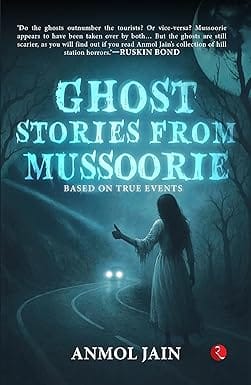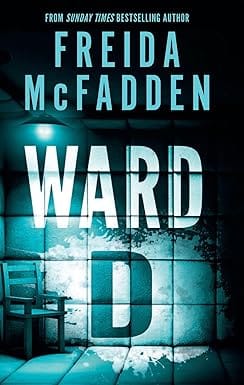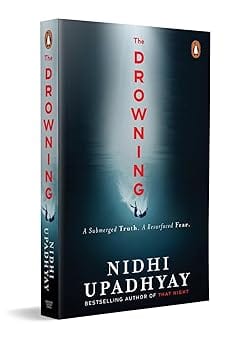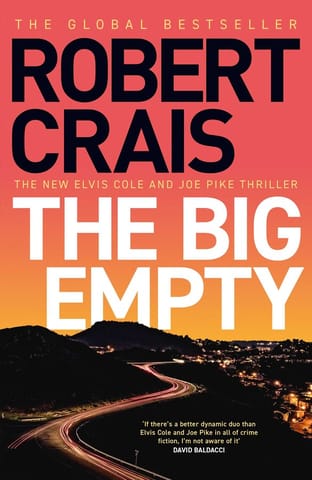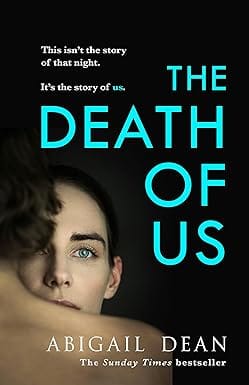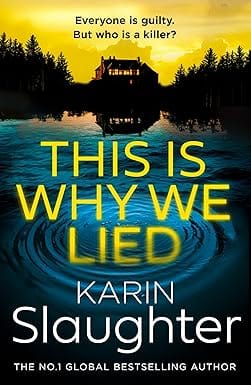WELCOME TO MIDLAND BOOK SHOP!
SHOP FOR
-
Contemporary Fiction
- Contemporary Fiction
-
Children
- Children
-
Comics & Graphic Novels
- Comics & Graphic Novels
-
Non-Fiction
- Non-Fiction
-
Fiction
- Fiction
Shop No.20, Aurobindo Palace Market, Hauz Khas, Near Church +91 9818282497 | 011 26867121
110016
New Delhi
IN
Midland The Book Shop ™
Shop No.20, Aurobindo Palace Market, Hauz Khas, Near Church +91 9818282497 | 011 26867121
New Delhi,
IN
+919871604786
https://www.midlandbookshop.com/s/607fe93d7eafcac1f2c73ea4/677cda367903fd013d69b606/without-tag-line-480x480.png"
[email protected]
9780571355754
65ddce8c6f13e6b2829436ec
The Skull Beneath The Skin
https://www.midlandbookshop.com/s/607fe93d7eafcac1f2c73ea4/65ddce8d6f13e6b28294375a/91k2p-su5yl-_sy425_.jpg
Book Description
In The Skull Beneath the Skin, the second Cordelia Gray mystery from P.D. James, Cordelia is hired to protect a beautiful but neurotic actress and soon becomes embroiled in a case as dangerous to her life as it is mysterious.
About the Author
P. D. James (1920-2014) was born in Oxford and educated at Cambridge High School for Girls. From 1949 to 1968 she worked in the National Health Service and subsequently in the Home Office, first in the Police Department and later in the Criminal Policy Department. All that experience was used in her novels. She was a Fellow of the Royal Society of Literature and of the Royal Society of Arts and served as a Governor of the BBC, a member of the Arts Council, where she was Chairman of the Literary Advisory Panel, on the Board of the British Council and as a magistrate in Middlesex and London. She was an Honorary Bencher of the Honourable Society of the Inner Temple. She won awards for crime writing in Britain, America, Italy and Scandinavia, including the Mystery Writers of America Grandmaster Award and The National Arts Club Medal of Honor for Literature (US). She received honorary degrees from seven British universities, was awarded an OBE in 1983 and was created a life peer in 1991. In 1997 she was elected President of the Society of Authors, stepping down from the post in August 2013.
Tributes to P.D. James (1920- 2014)
From Stephen Page's Tribute to P.D. James , given at the Memorial Service in London
on 29th April, 2015
Phyllis had a long writing career of over fifty years that began surprisingly late. She embarked on Cover Her Face in her mid-thirties. In her autobiography, Time to Be in Earnest, she admitted some regret that she didn't start earlier, saying that 'a streak of indolence . . . made it more agreeable to contemplate the first book rather than actually write it'. Yes, the well-known indolence of P. D. James!
....
Despite a later start she leaves an impressive body of work comprising nineteen brilliant and original novels, and three works of non-fiction, all of which continue to be read throughout the world. To her the choice of detective fiction was simply obvious, but she made it her own and stamped an originality and literary quality upon the genre like no other writer before her. She said that she wrote detective novels for the reasons readers are fascinated by them, for what she called 'the catharsis of carefully controlled terror' and the bringing of order out of disorder.
....
The story of her arrival at Faber is well known. At a dinner at All Souls, Elaine Greene, Phyllis's newly acquired agent, sat next to Charles Monteith, a director from Faber. He said that Faber was looking for a new detective-fiction writer since the recent death of Cyril Hare, and Elaine replied, 'I think I have what you are looking for.' Faber took on Cover Her Face in 1960, prompting the marvellous image of Phyllis, in her own words, 'prancing up and down the hall' on hearing the news. A treasure in the Faber Archive is the first book report, written by a perceptive female editor who quickly saw Phyllis's talent, and also perhaps one of the less discussed keys to the success of the Dalgliesh books. She commented that maybe it required a male editor's opinion, and I quote, 'I . . . got rather carried away by the inspector's compelling blue eyes.'
Inspector Dalgliesh was never far from Phyllis's thoughts, and not, I think, for his blue eyes. He is a good man, a poet, and he stands and speaks for Phyllis's humanity, a humanity that meant she could imagine what it was to be so overrun by desire or envy or anger or vengefulness that a person would commit a terrible crime. This gives the books their toughness and believability, and makes the reader's feeling for Dalgliesh all the greater as he seeks to restore order. Phyllis's compassion and love is visible both in and for Dalgliesh. Her kindness to her hero in the last three books, with his marriage to Emma - with more than a nod to her beloved Jane Austen - is so moving, and gives her readers the most encouraging and deeply affecting portrait of love's healing power. It's a gift to us all, as also are the final pages of Death Comes to Pemberley where Darcy and Elizabeth survey their world kindly despite the preceding traumatic events. The belief that good can prevail in a difficult world remains Phyllis's central message.
...
Phyllis was a good person and a great writer. She was an inspiration to readers, publishers and to our nation's literary culture. In Time to Be in Earnest she refers to W. H. Auden's essay on detective fiction from 1946 in which he says, 'The phantasy, then, which the detective story addict indulges is the phantasy of being restored to the Garden of Eden, to a state of innocence, where he may know love as love and not as the law.' The Private Patient, her final Dalgliesh novel, ends, 'The world is a beautiful and terrible place . . . If the screams of all earth's living creatures were one scream of pain, surely it would shake the stars. But we have love . . . we must hold fast and believe in it, for it is all that we have.' Phyllis knew love as love, and was able to give it, both in her life and in her fiction. We will all miss that; her beloved family, her friends, those she worked with, and her readers. But the joy is that her love remains in the lives of those who knew her and, more lastingly even, in her books, which will continue to thrill, nourish and entertain each new generation of readers, as is the gift of all great literature and great writers.
From the Daily Telegraph
During more than 50 years as an author, her books showed an elegance of characterisation and an aptitude for capturing atmosphere that blurred distinctions between classic detective stories and the conventional novel. She admitted that she had started writing crime fiction because she thought it would be easier to have a story published in that genre before going on to produce "proper" novels.
...
9780571355754
Tributes to P.D. James (1920- 2014)
From Stephen Page's Tribute to P.D. James , given at the Memorial Service in London
on 29th April, 2015
Phyllis had a long writing career of over fifty years that began surprisingly late. She embarked on Cover Her Face in her mid-thirties. In her autobiography, Time to Be in Earnest, she admitted some regret that she didn't start earlier, saying that 'a streak of indolence . . . made it more agreeable to contemplate the first book rather than actually write it'. Yes, the well-known indolence of P. D. James!
....
Despite a later start she leaves an impressive body of work comprising nineteen brilliant and original novels, and three works of non-fiction, all of which continue to be read throughout the world. To her the choice of detective fiction was simply obvious, but she made it her own and stamped an originality and literary quality upon the genre like no other writer before her. She said that she wrote detective novels for the reasons readers are fascinated by them, for what she called 'the catharsis of carefully controlled terror' and the bringing of order out of disorder.
....
The story of her arrival at Faber is well known. At a dinner at All Souls, Elaine Greene, Phyllis's newly acquired agent, sat next to Charles Monteith, a director from Faber. He said that Faber was looking for a new detective-fiction writer since the recent death of Cyril Hare, and Elaine replied, 'I think I have what you are looking for.' Faber took on Cover Her Face in 1960, prompting the marvellous image of Phyllis, in her own words, 'prancing up and down the hall' on hearing the news. A treasure in the Faber Archive is the first book report, written by a perceptive female editor who quickly saw Phyllis's talent, and also perhaps one of the less discussed keys to the success of the Dalgliesh books. She commented that maybe it required a male editor's opinion, and I quote, 'I . . . got rather carried away by the inspector's compelling blue eyes.'
Inspector Dalgliesh was never far from Phyllis's thoughts, and not, I think, for his blue eyes. He is a good man, a poet, and he stands and speaks for Phyllis's humanity, a humanity that meant she could imagine what it was to be so overrun by desire or envy or anger or vengefulness that a person would commit a terrible crime. This gives the books their toughness and believability, and makes the reader's feeling for Dalgliesh all the greater as he seeks to restore order. Phyllis's compassion and love is visible both in and for Dalgliesh. Her kindness to her hero in the last three books, with his marriage to Emma - with more than a nod to her beloved Jane Austen - is so moving, and gives her readers the most encouraging and deeply affecting portrait of love's healing power. It's a gift to us all, as also are the final pages of Death Comes to Pemberley where Darcy and Elizabeth survey their world kindly despite the preceding traumatic events. The belief that good can prevail in a difficult world remains Phyllis's central message.
...
Phyllis was a good person and a great writer. She was an inspiration to readers, publishers and to our nation's literary culture. In Time to Be in Earnest she refers to W. H. Auden's essay on detective fiction from 1946 in which he says, 'The phantasy, then, which the detective story addict indulges is the phantasy of being restored to the Garden of Eden, to a state of innocence, where he may know love as love and not as the law.' The Private Patient, her final Dalgliesh novel, ends, 'The world is a beautiful and terrible place . . . If the screams of all earth's living creatures were one scream of pain, surely it would shake the stars. But we have love . . . we must hold fast and believe in it, for it is all that we have.' Phyllis knew love as love, and was able to give it, both in her life and in her fiction. We will all miss that; her beloved family, her friends, those she worked with, and her readers. But the joy is that her love remains in the lives of those who knew her and, more lastingly even, in her books, which will continue to thrill, nourish and entertain each new generation of readers, as is the gift of all great literature and great writers.
From the Daily Telegraph
During more than 50 years as an author, her books showed an elegance of characterisation and an aptitude for capturing atmosphere that blurred distinctions between classic detective stories and the conventional novel. She admitted that she had started writing crime fiction because she thought it would be easier to have a story published in that genre before going on to produce "proper" novels.
...
out of stock
INR
479
1
1
Email ID already exists!
Your Current password is incorrect
Password Updated Successfully
Thanks for your Feedback
- Home
- Crime Thriller & Mystery Books
- The Skull Beneath The Skin
The Skull Beneath The Skin
ISBN:
9780571355754
₹479
₹599
(20% OFF)
SIZE GUIDE
Back In Stock Shortly - Fill The Book Request Form
Sold By:
Hauz Khas - Aurobindo Market
Details
- ISBN: 9780571355754
- Author: P D James
- Publisher: Faber And Faber
- Pages: 480
- Format: Paperback
Book Description
Book Description
In The Skull Beneath the Skin, the second Cordelia Gray mystery from P.D. James, Cordelia is hired to protect a beautiful but neurotic actress and soon becomes embroiled in a case as dangerous to her life as it is mysterious.
About the Author
P. D. James (1920-2014) was born in Oxford and educated at Cambridge High School for Girls. From 1949 to 1968 she worked in the National Health Service and subsequently in the Home Office, first in the Police Department and later in the Criminal Policy Department. All that experience was used in her novels. She was a Fellow of the Royal Society of Literature and of the Royal Society of Arts and served as a Governor of the BBC, a member of the Arts Council, where she was Chairman of the Literary Advisory Panel, on the Board of the British Council and as a magistrate in Middlesex and London. She was an Honorary Bencher of the Honourable Society of the Inner Temple. She won awards for crime writing in Britain, America, Italy and Scandinavia, including the Mystery Writers of America Grandmaster Award and The National Arts Club Medal of Honor for Literature (US). She received honorary degrees from seven British universities, was awarded an OBE in 1983 and was created a life peer in 1991. In 1997 she was elected President of the Society of Authors, stepping down from the post in August 2013.
Tributes to P.D. James (1920- 2014)
From Stephen Page's Tribute to P.D. James , given at the Memorial Service in London
on 29th April, 2015
Phyllis had a long writing career of over fifty years that began surprisingly late. She embarked on Cover Her Face in her mid-thirties. In her autobiography, Time to Be in Earnest, she admitted some regret that she didn't start earlier, saying that 'a streak of indolence . . . made it more agreeable to contemplate the first book rather than actually write it'. Yes, the well-known indolence of P. D. James!
....
Despite a later start she leaves an impressive body of work comprising nineteen brilliant and original novels, and three works of non-fiction, all of which continue to be read throughout the world. To her the choice of detective fiction was simply obvious, but she made it her own and stamped an originality and literary quality upon the genre like no other writer before her. She said that she wrote detective novels for the reasons readers are fascinated by them, for what she called 'the catharsis of carefully controlled terror' and the bringing of order out of disorder.
....
The story of her arrival at Faber is well known. At a dinner at All Souls, Elaine Greene, Phyllis's newly acquired agent, sat next to Charles Monteith, a director from Faber. He said that Faber was looking for a new detective-fiction writer since the recent death of Cyril Hare, and Elaine replied, 'I think I have what you are looking for.' Faber took on Cover Her Face in 1960, prompting the marvellous image of Phyllis, in her own words, 'prancing up and down the hall' on hearing the news. A treasure in the Faber Archive is the first book report, written by a perceptive female editor who quickly saw Phyllis's talent, and also perhaps one of the less discussed keys to the success of the Dalgliesh books. She commented that maybe it required a male editor's opinion, and I quote, 'I . . . got rather carried away by the inspector's compelling blue eyes.'
Inspector Dalgliesh was never far from Phyllis's thoughts, and not, I think, for his blue eyes. He is a good man, a poet, and he stands and speaks for Phyllis's humanity, a humanity that meant she could imagine what it was to be so overrun by desire or envy or anger or vengefulness that a person would commit a terrible crime. This gives the books their toughness and believability, and makes the reader's feeling for Dalgliesh all the greater as he seeks to restore order. Phyllis's compassion and love is visible both in and for Dalgliesh. Her kindness to her hero in the last three books, with his marriage to Emma - with more than a nod to her beloved Jane Austen - is so moving, and gives her readers the most encouraging and deeply affecting portrait of love's healing power. It's a gift to us all, as also are the final pages of Death Comes to Pemberley where Darcy and Elizabeth survey their world kindly despite the preceding traumatic events. The belief that good can prevail in a difficult world remains Phyllis's central message.
...
Phyllis was a good person and a great writer. She was an inspiration to readers, publishers and to our nation's literary culture. In Time to Be in Earnest she refers to W. H. Auden's essay on detective fiction from 1946 in which he says, 'The phantasy, then, which the detective story addict indulges is the phantasy of being restored to the Garden of Eden, to a state of innocence, where he may know love as love and not as the law.' The Private Patient, her final Dalgliesh novel, ends, 'The world is a beautiful and terrible place . . . If the screams of all earth's living creatures were one scream of pain, surely it would shake the stars. But we have love . . . we must hold fast and believe in it, for it is all that we have.' Phyllis knew love as love, and was able to give it, both in her life and in her fiction. We will all miss that; her beloved family, her friends, those she worked with, and her readers. But the joy is that her love remains in the lives of those who knew her and, more lastingly even, in her books, which will continue to thrill, nourish and entertain each new generation of readers, as is the gift of all great literature and great writers.
From the Daily Telegraph
During more than 50 years as an author, her books showed an elegance of characterisation and an aptitude for capturing atmosphere that blurred distinctions between classic detective stories and the conventional novel. She admitted that she had started writing crime fiction because she thought it would be easier to have a story published in that genre before going on to produce "proper" novels.
...
Tributes to P.D. James (1920- 2014)
From Stephen Page's Tribute to P.D. James , given at the Memorial Service in London
on 29th April, 2015
Phyllis had a long writing career of over fifty years that began surprisingly late. She embarked on Cover Her Face in her mid-thirties. In her autobiography, Time to Be in Earnest, she admitted some regret that she didn't start earlier, saying that 'a streak of indolence . . . made it more agreeable to contemplate the first book rather than actually write it'. Yes, the well-known indolence of P. D. James!
....
Despite a later start she leaves an impressive body of work comprising nineteen brilliant and original novels, and three works of non-fiction, all of which continue to be read throughout the world. To her the choice of detective fiction was simply obvious, but she made it her own and stamped an originality and literary quality upon the genre like no other writer before her. She said that she wrote detective novels for the reasons readers are fascinated by them, for what she called 'the catharsis of carefully controlled terror' and the bringing of order out of disorder.
....
The story of her arrival at Faber is well known. At a dinner at All Souls, Elaine Greene, Phyllis's newly acquired agent, sat next to Charles Monteith, a director from Faber. He said that Faber was looking for a new detective-fiction writer since the recent death of Cyril Hare, and Elaine replied, 'I think I have what you are looking for.' Faber took on Cover Her Face in 1960, prompting the marvellous image of Phyllis, in her own words, 'prancing up and down the hall' on hearing the news. A treasure in the Faber Archive is the first book report, written by a perceptive female editor who quickly saw Phyllis's talent, and also perhaps one of the less discussed keys to the success of the Dalgliesh books. She commented that maybe it required a male editor's opinion, and I quote, 'I . . . got rather carried away by the inspector's compelling blue eyes.'
Inspector Dalgliesh was never far from Phyllis's thoughts, and not, I think, for his blue eyes. He is a good man, a poet, and he stands and speaks for Phyllis's humanity, a humanity that meant she could imagine what it was to be so overrun by desire or envy or anger or vengefulness that a person would commit a terrible crime. This gives the books their toughness and believability, and makes the reader's feeling for Dalgliesh all the greater as he seeks to restore order. Phyllis's compassion and love is visible both in and for Dalgliesh. Her kindness to her hero in the last three books, with his marriage to Emma - with more than a nod to her beloved Jane Austen - is so moving, and gives her readers the most encouraging and deeply affecting portrait of love's healing power. It's a gift to us all, as also are the final pages of Death Comes to Pemberley where Darcy and Elizabeth survey their world kindly despite the preceding traumatic events. The belief that good can prevail in a difficult world remains Phyllis's central message.
...
Phyllis was a good person and a great writer. She was an inspiration to readers, publishers and to our nation's literary culture. In Time to Be in Earnest she refers to W. H. Auden's essay on detective fiction from 1946 in which he says, 'The phantasy, then, which the detective story addict indulges is the phantasy of being restored to the Garden of Eden, to a state of innocence, where he may know love as love and not as the law.' The Private Patient, her final Dalgliesh novel, ends, 'The world is a beautiful and terrible place . . . If the screams of all earth's living creatures were one scream of pain, surely it would shake the stars. But we have love . . . we must hold fast and believe in it, for it is all that we have.' Phyllis knew love as love, and was able to give it, both in her life and in her fiction. We will all miss that; her beloved family, her friends, those she worked with, and her readers. But the joy is that her love remains in the lives of those who knew her and, more lastingly even, in her books, which will continue to thrill, nourish and entertain each new generation of readers, as is the gift of all great literature and great writers.
From the Daily Telegraph
During more than 50 years as an author, her books showed an elegance of characterisation and an aptitude for capturing atmosphere that blurred distinctions between classic detective stories and the conventional novel. She admitted that she had started writing crime fiction because she thought it would be easier to have a story published in that genre before going on to produce "proper" novels.
...
Related Books
User reviews
NEWSLETTER
Subscribe to get Email Updates!
Thanks for subscribing.
Your response has been recorded.

India's Iconic & Independent Book Store offering a vast selection of books across a variety of genres Since 1978.
"We Believe In The Power of Books" Our mission is to make books accessible to everyone, and to cultivate a culture of reading and learning. We strive to provide a wide range of books, from classic literature, sci-fi and fantasy, to graphic novels, biographies and self-help books, so that everyone can find something to read.
Whether you’re looking for your next great read, a gift for someone special, or just browsing, Midland is here to make your book-buying experience easy and enjoyable.
We are shipping pan India and across the world.
For Bulk Order / Corporate Gifting
 +91 9818282497 |
+91 9818282497 |  [email protected]
[email protected]
Click To Know More
INFORMATION
POLICIES
ACCOUNT
QUICK LINKS
ADDRESS
Midland Book Shop - Hauz Khas
Shop No.20, Aurobindo Palace Market, Near Church, New Delhi
Shop No.20, Aurobindo Palace Market, Near Church, New Delhi



